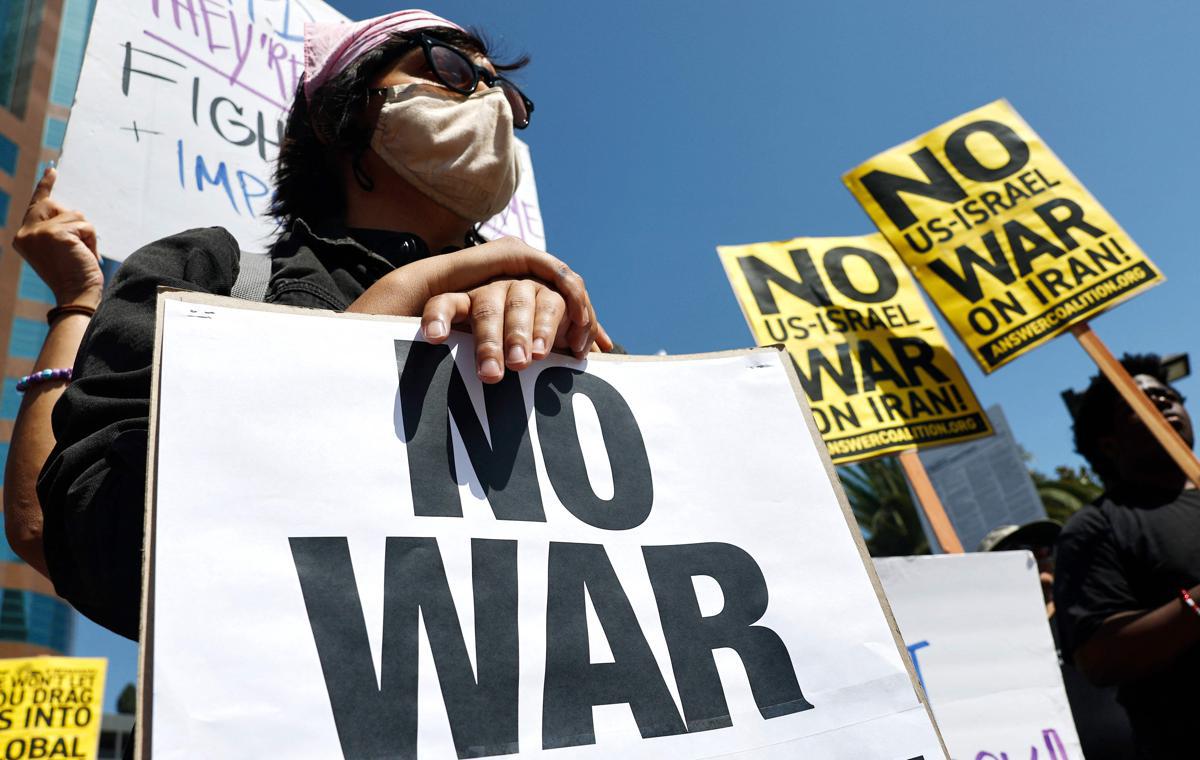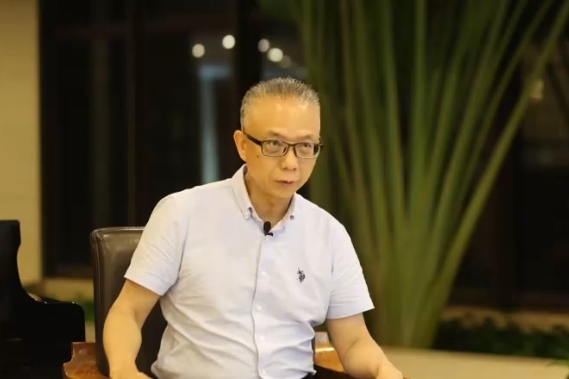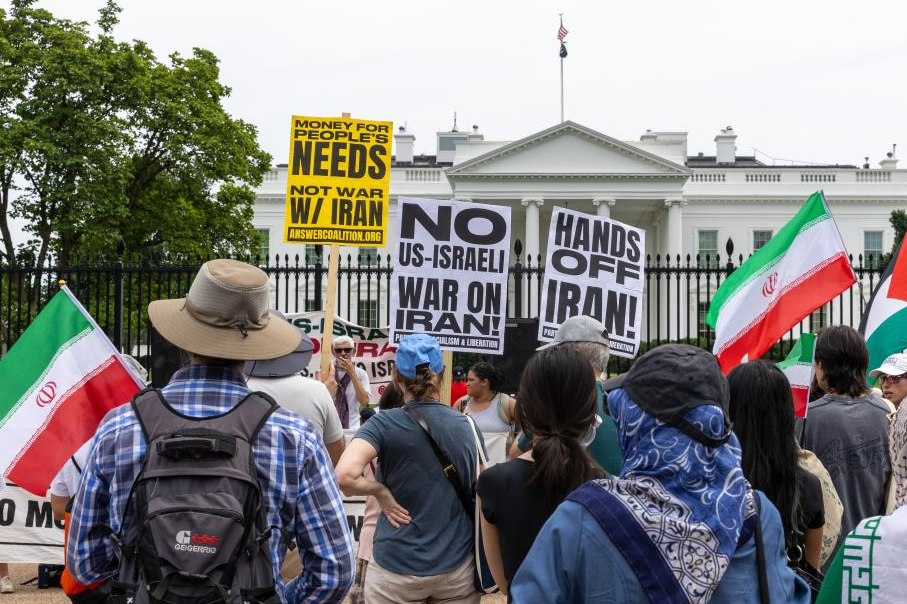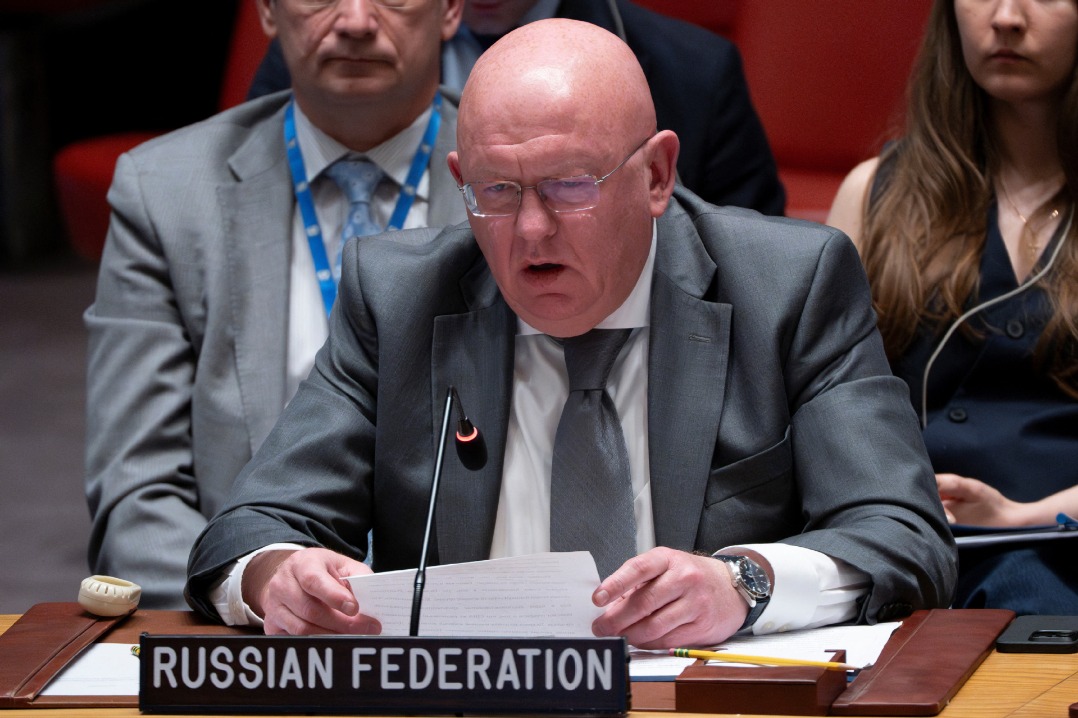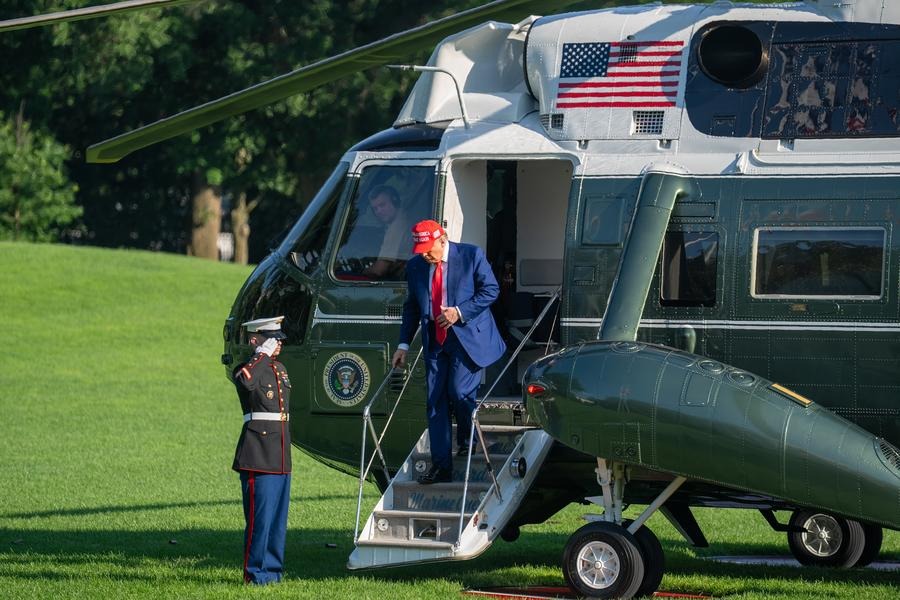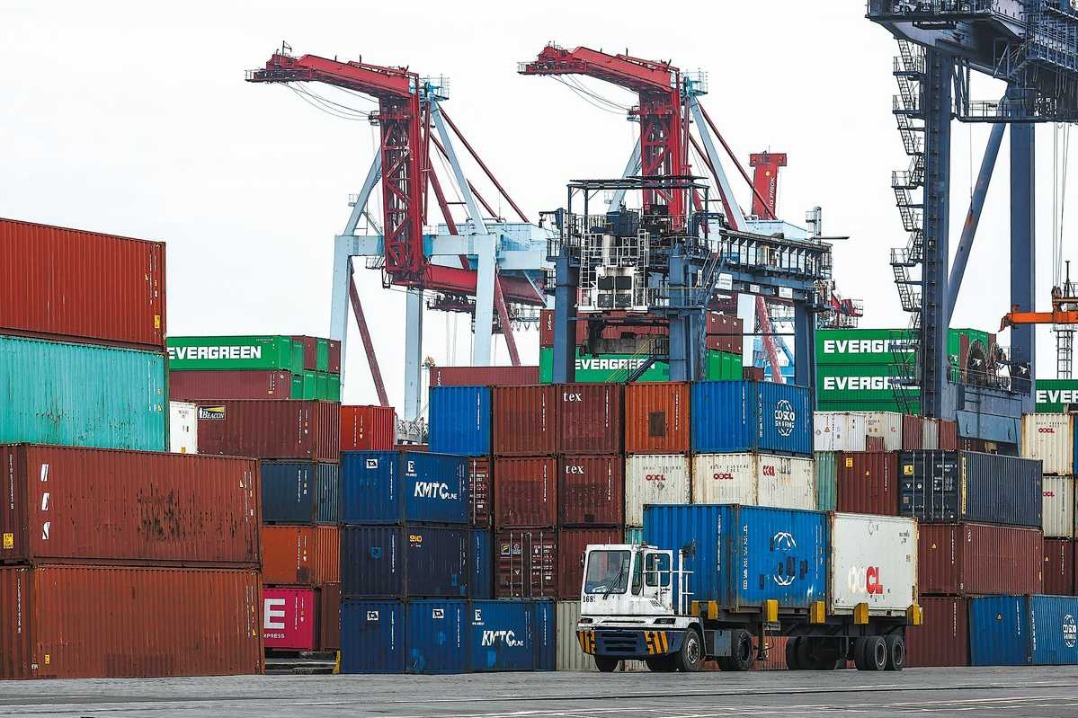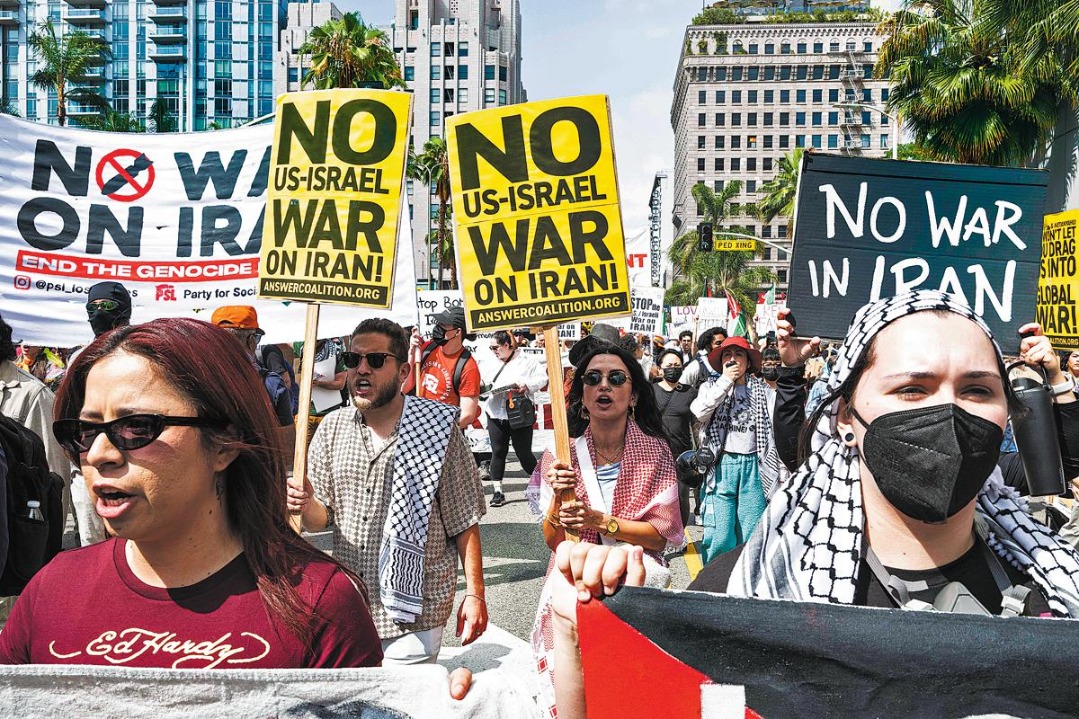Beijing deplores US role in Mideast conflict, calls for peace and stability
Mideast:?Experts warn of potential spillover of tensions





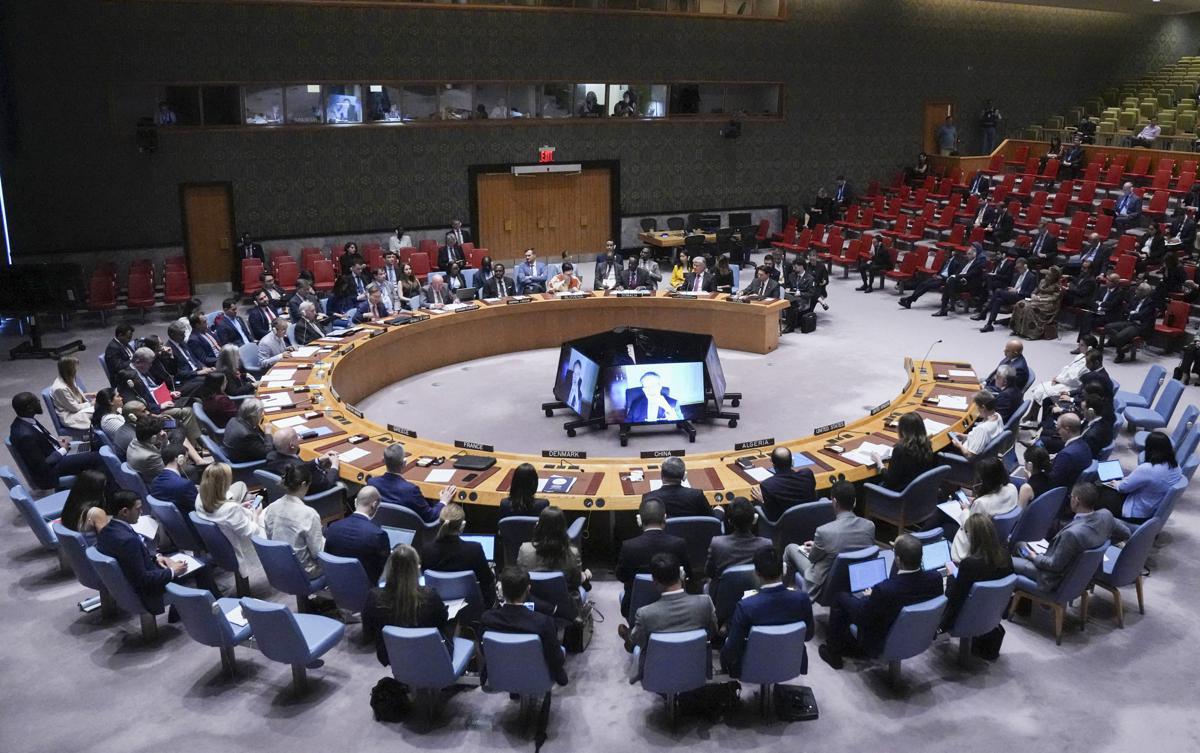
China condemned the United States' role in escalating tensions in the Middle East and urged all parties to return to dialogue and negotiations, as Israel targeted a nuclear site, a prison and power infrastructure in a fresh wave of strikes on Iran on Monday.
The US attacks on three Iranian nuclear facilities on Sunday seriously violate the purposes and principles of the United Nations Charter, and have exacerbated tensions in the Middle East, Foreign Ministry spokesman Guo Jiakun said at a daily news briefing on Monday, adding that the UN Security Council "cannot stand idly by".
On Sunday, the UN Security Council held an emergency meeting at Iran's request, during which China, Russia and Pakistan proposed a draft resolution urging the 15-member council to call for an "immediate and unconditional ceasefire" in the Middle East.
The resolution also seeks the protection of civilians, adherence to international law and the resumption of dialogue and negotiations, Guo said, noting that it reflects the strong desire of the international community and serves as a call for justice.
"We hope that members can jointly support the draft resolution and enable the Security Council to play its due role for the maintenance of international peace and security," he added.
Fu Cong, China's permanent representative to the UN, said at the meeting that peace in the Middle East cannot be achieved by the use of force.
"Dialogue and negotiations are the fundamental ways out. At present, diplomatic means to address the Iranian nuclear issue have not been exhausted, and there is still hope for a peaceful resolution of the matter," Fu said.
On Monday, Israel attacked the command centers of the Iranian Revolutionary Guard Corps and its paramilitary wing, in addition to strikes on Evin Prison, power supply lines in northern parts of capital Teheran, and access routes to the Fordow uranium enrichment site.
Iran said the "unprecedented acts of aggression" against Iranian nuclear facilities by Israel and the US "delivered a fundamental and irreparable blow" to the international nonproliferation regime, including the framework of the Treaty on the Non-Proliferation of Nuclear Weapons.
It called US President Donald Trump a "gambler" for joining Israel's military campaign against Iran, and said that the US attacks expanded the range of legitimate targets for its armed forces.
Iran unleashed its 21st wave of missile and drone attacks on Israel on Monday, its state broadcaster reported. The country has used a combination of solid- and liquid-fuel missiles in the attack, as well as special tactics, to render Israel's air defense ineffective, the report said.
On Sunday, Iran's parliament reportedly approved the closure of the Strait of Hormuz, a crucial channel for global oil trade, although its implementation would need further clearance. The Iranian parliament is considering suspension of cooperation with the International Atomic Energy Agency, the UN nuclear watchdog.
Guo, the Chinese Foreign Ministry spokesman, said the Persian Gulf is an important route for global trade in goods and energy, urging broader international effort to defuse tensions and prevent regional instability from further impacting the global economy.
"China stands ready to strengthen communication with Iran and other relevant parties, and will continue to play a constructive role in promoting de-escalation," he said.
Experts warned of the potential spillover of the escalating Israel-Iran conflict and called for renewed efforts toward peaceful negotiations.
Sun Degang, director of the Center for Middle Eastern Studies at Fudan University in Shanghai, said the US airstrikes on Iran have risked breaking the regional balance of power. "By targeting Iran, the US is looking to strengthen Israel's dominant position in the region, which could prompt countries such as Turkiye and Saudi Arabia to recalibrate their policies," he said.
Sun warned that if Iran perceives its sovereignty to be under threat, it might respond with more aggressive measures.
"The Trump administration could misjudge the situation, intensify pressure on Iran, and even pursue regime change — actions that might trigger a wider conflict in the Middle East with unpredictable consequences for regional stability and global security," he said.
Sun added that Iran's threat to close the Strait of Hormuz could send global oil prices soaring, with serious implications for energy-dependent countries in Asia.
Shakeel Ahmad Ramay, CEO of the Asian Institute of Eco-civilization Research and Development in Pakistan, described the region as being on the brink of a complex web of power struggles.
"Israel will continue destabilizing Iran under the pretext of nuclear threats, while Iran will retaliate. This will make it extremely difficult for any side to come to the negotiating table," he said, emphasizing the role of multilateral institutions in defusing the tension.
"China has demonstrated a strong commitment to peace and global stability through its Global Security Initiative, which aims to promote dialogue, mutual respect and cooperative solutions to international security challenges. That is needed in tackling the current challenge," he added.
